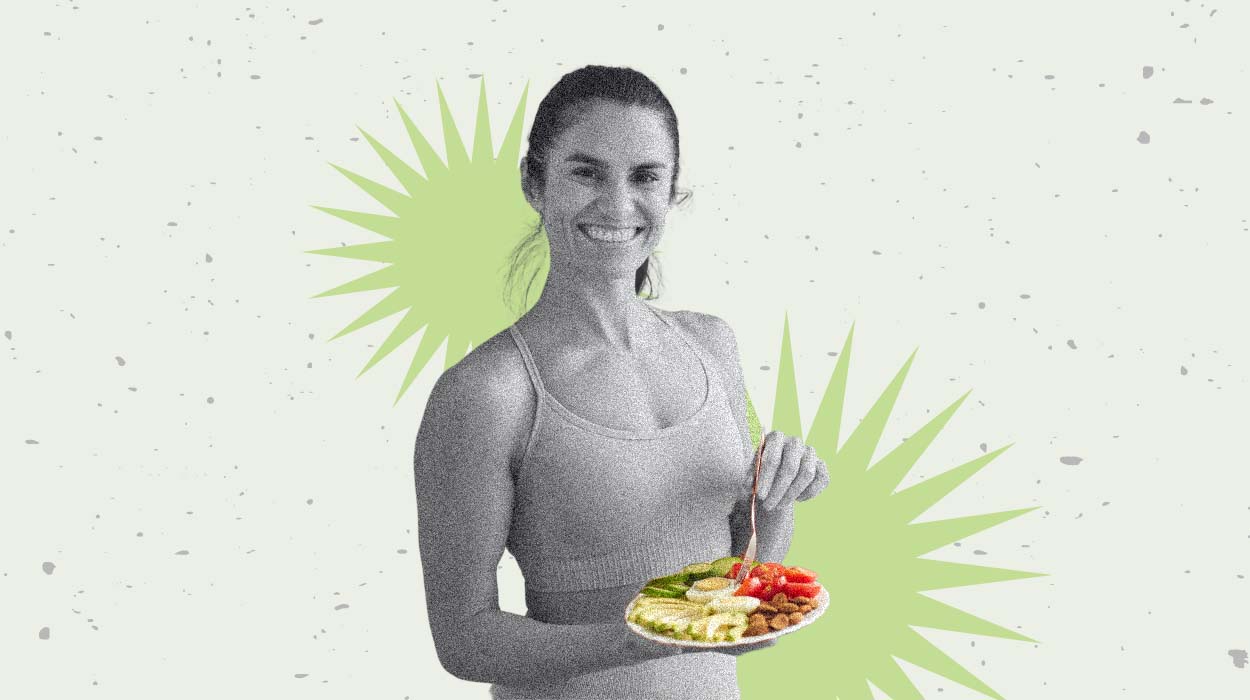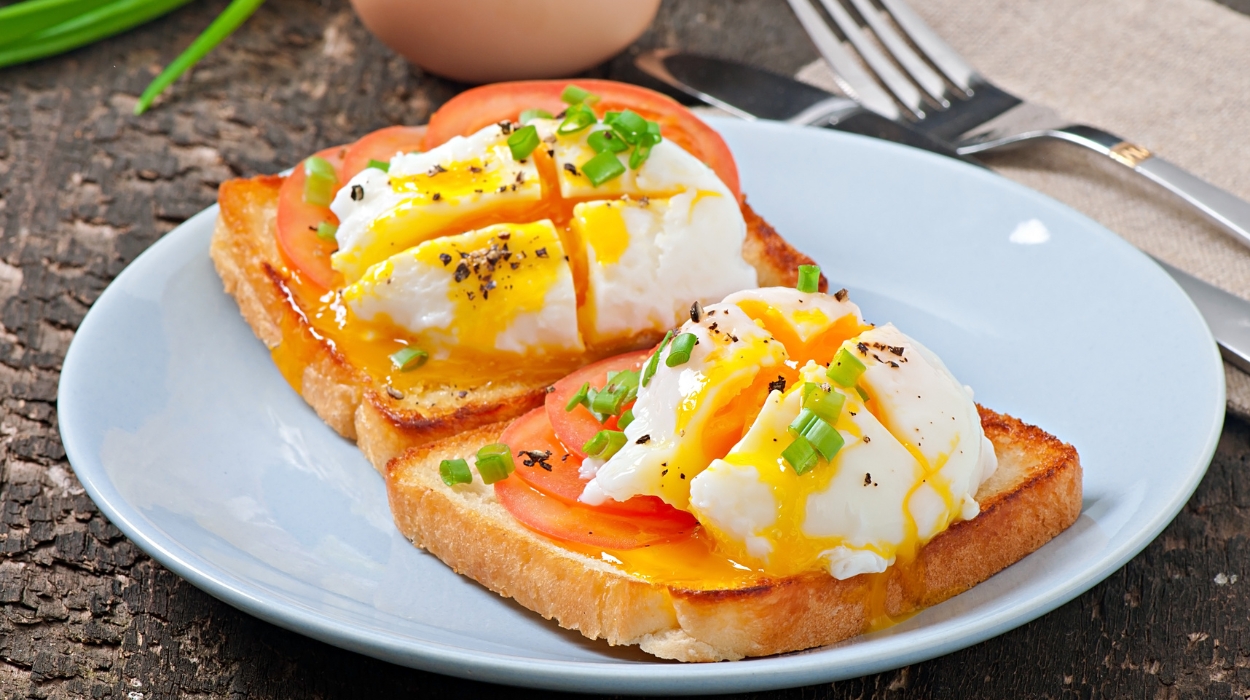
If you want to maximize your workout goals, you have to nail pre-workout nutrition. It’s usually recommended to eat a healthy diet before a workout, whether to optimize workout performance or to get desired muscle growth.
However, during some less energy-demanding activities, it is not always necessary as you already have some food energy stored in the muscles and liver. Some active people even work out on an empty stomach, which can drive into fatty acids as a form of energy. This is not always optimal, but it can work.
Eating Before Workout: Recommended List
What To Eat Before A Workout
Proteins

Protein consumption is crucial, not just for sports nutrition but throughout the day. A good quality protein source, say whey protein can stimulate muscle protein synthesis through its composition of essential amino acids (EAA). EAA are the building blocks for muscle as I have highlighted below.
What is most important about a protein source for a pre-workout balanced meal is the concentration of a branched-chain amino acid (BCAA) called leucine (also an EAA).
Leucine signals for muscle protein synthesis through the mammalian target of tropomyosin (mTOR), which goes through a chain of processes and eventually transcribes information from DNA, followed by translating it into muscle proteins.
Getting two to three grams of leucine is effective before a workout. This type of dose can be taken up by 20-50 grams of protein depending on the quality of the source.
This can help keep the muscles fed, along with building muscle mass and strength in the long term. But remember, protein intake is not only exclusive to strength-based activities but is also important for endurance sports for the maintenance of conditioned lean body mass.
Typically, the response of muscle protein synthesis lasts around three hours, before being overlapped by muscle protein degradation (breakdown).
Depending on the duration of your workout, you could ingest BCAA sports drinks to lengthen the response of muscle protein synthesis, if you want to go that extra mile towards your fitness goals.
As a side note, it must be mentioned that the most important variable than pre-workout protein is total daily protein intake.
So what exactly could you eat as a protein source before a workout?
So essentially you are looking for something easily digestible with a low-moderate fat content. Secondly, you need to aim for a protein source with a good amino acid profile[1] to stimulate muscle protein synthesis and can be digested pretty easily with a low-moderate fat content. The top three pre-workout protein sources include:
- Whey Protein (11% leucine)
- Low Fat Milk Protein (10% Leucine)
- Egg Protein (8.8-9% Leucine)
Carbs
You can not forget carbs! Carbs are consumed, digested, and then stored within the muscles, liver, and brain glycogen. Glycogen is the energy source that people are reliant on unless you have become fat-adapted, but that is a whole other rant altogether.
Glycogen is broken into glucose. Glucose is then broken down through a few processes called glycolysis, Kreb cycle, and electron transport chain to make energy to fuel a workout. This energy is also known as ATP.
Per each glucose molecule, you can produce up to 38 ATP.
Based on sports nutrition, it is a good idea to eat one gram of carbohydrate per kg of body weight (or 0.46 x lb). Perhaps you could go a little lower if you are trying to lose weight, but I usually reduce carbs from other meals, including breakfast, dinner, or your additional snack.
For example, there is an 80-kilogram man, who may benefit from eating 80 grams of carbohydrates as a pre-workout snack or meal. This is especially important for those who engage in intense workouts and burn through a lot of energy.
So what exactly could you eat as a Carb source before a workout?
Typically, you are looking for some complex carbohydrates and perhaps some simple carbohydrates. To top up glycogen stores, an 80kg male could eat;
- 100 grams Oats + 100 grams cranberries
- Two thick slices of wholemeal toast topped with 100 grams of strawberry jam
- Honey and Oat bars (120 grams)
- Two to three Oat and Raisin Cookies (4 feet each)
Co-ingesting Macronutrients
Now you have a reasonable understanding of the importance of protein and carbs. You can combine protein and carbs[2] to put together for optimal benefits.
You are ‘killing two birds with one stone’. Not in the literal sense, but this means that you are hitting your proteins to reap the muscle mass benefits, and getting in the carbs to help fuel the workout. Not to mention, protein combined with carbs slightly increases the rate of muscle protein synthesis through insulin concentration.
The ‘go to’ meals for the first few years of working out were oats, honey, and berries mixed with one scoop of whey protein powder. Another dish you can combine is a lean turkey sandwich with a drizzle of tomato sauce.
Water And Fluids

Water is like a sports drink. You often forget about water intake. It should be around 20 ounces of water which is around 2.5 cups. A bit of water with a pre-exercise meal and some with a pre-workout supplement. This ensures proper hydration, which may improve athletic performance.
Pre-Workout Supplements
The general suggestion is to consume the pre-workout meal a few hours before exercise and a pre-workout supplement within 30-45 minutes of exercise.[3]
The best pre-workout supplements can come in the form of an energy sports drink, pills, powder mix, etc. The ingredients include:
- Caffeine (200-300 milligrams)
- Citrulline malate (6-10 grams)
- Beta-alanine (3-4 grams)
- Betaine (2.5 grams)
Factors To Consider For Eating Before A Workout
When You Are Working Out
Sports medicine practice has allowed us to understand that food takes some time to digest and ‘absorb’ into the system. So you can not eat it too close or far from a workout. Generally, pre-workout snacks or meals 1.5-2 hours before exercise are suitable, this helps you feel strong without being too bloated.
Just before the workout timing, say 30-45 minutes I like to ingest a caffeine-based pre-workout supplement to give me the extra free energy, as will be discussed.
Type Of Workout
Pre-exercise meals can be more important for some forms of exercise as compared to others. For endurance and long-distance sports, you may need to have a full tank of energy to get you through the energy-demanding session. This will begin to make sense as you get further into the article.
For simple resistance training, the pre-workout meal may not have to be dialed in as much, in terms of how many carbs you get in. This is because you tend to have enough energy stored in the muscles for these short workouts.
How Long You Are Working Out
It is no surprise that long grueling workouts demand more energy from food. Endurance athletes tend to eat large amounts of complex carbs before a training session.
Another technique used for long-distance exercise participants is to consume 60-80 grams of glucose from foods like gummy bears and glucose drinks every hour during exercise.
The reason for this is that the pre-workout fuel and even previous energy stores are usually depleted within one hour of exercise. Glucose enters the bloodstream quickly and offers rapid energy.
What Not To Eat In Pre-Workout Meals
Generally, I do not like the idea of a high-fat meal before a workout. High-fat meals take a longer time to digest and can even cause some stomach discomfort. Certainly, the last thing that you want while going on a long run or barbell squatting some heavy weights.
Other foods that are not recommended are simple carbohydrates alone as they get burnt through too fast. Simple carbs may be good for post-workout nutrition after some activities, as they can help resynthesize glycogen stores rapidly. So as a general recommendation, I am going to highlight some foods that you may want to avoid.
Fried Food
Fried foods like fries and chips are saturated in oil. Oil is considered a high-fat source, which means fries and chips are high in fat. Not only will fries and chips take a long time to digest, but they are also very high in calories which may cause weight gain and body fat.
Cakes And Pastries
Cakes are high in sugar, fat, and carbohydrate. They probably are not the best to eat before a workout as they are high in calories and do not digest quickly.
Cheese
Cheese can make a great post-workout snack from the casein content. But to be honest, I would not favor them before a workout. Firstly, they are higher in fat. Secondly, the protein type (casein) takes a bit more of a steady approach to be released in the bloodstream.
Conclusion
When you consider pre-workout nutrition, make sure that the nutrients are eaten and delivered to the body in time for the workout (meal timing). However, some physical activity would probably not need as much attention (light to moderate exercise). The amount of food needed could depend on how much you will exercise (duration).
Generally, it is suggested that moderate protein and high carbohydrate meals. Both of these macronutrients can be combined to better the benefits. Do not forget to drink enough water for fluid balance. If you want to boost performance even more, you could try a caffeine-based stimulant just before working out.
You should avoid foods high in fat and sugar to digest food and get a steady flow of energy. So what you are looking at are fried foods, sugary bakes, and cheeses. All in all, a pre-workout meal can help people who workout, with practically no major drawbacks.
Frequently Asked Questions
YES! But if you are doing some endurance-based exercises, it may not provide optimal performance.
I would probably go with whey protein for its bioavailability and amino acid concentration. This does not mean that it is the best overall.
I would go with complex carbs are more steady in the bloodstream, whereas simple carbohydrates will be rapid and may cause a crash in energy.
I do not see an issue with taking creatine before your workout. Creatine timing does not make much difference.
YES! If you do not drink enough water, there is a chance that you may get dehydrated from the workout. Dehydration has many adverse effects.
YES! Fruit contains carbohydrates to fuel your workouts. I would go for a low-fat yogurt, which contains some carbohydrates and protein.
A pre-workout meal is eaten before a workout, whereas a mid-workout meal is eaten during a workout. I have never really had a full meal during my workout, a BCAA drink at most.
Resources
- Wilson, J.M., Stephanie, Loenneke, J.P. and Stout, J.R. (2012). Effects of Amino Acids and their Metabolites on Aerobic and Anaerobic Sports. [online] ResearchGate. Available at: https://www.researchgate.net/publication/256297476_Effects_of_Amino_Acids_and_their_Metabolites_on_Aerobic_and_Anaerobic_Sports.
- Koopman, R., Pannemans, D., Jeukendrup, A.E., Gijsen, A.P., Senden, J.M., Halliday, D., Saris, M., Loon, van and Anton (2004). Combined ingestion of protein and carbohydrate improves protein balance during ultra-endurance exercise. American Journal of Physiology-endocrinology and Metabolism, [online] 287(4), pp.E712–E720. doi:https://doi.org/10.1152/ajpendo.00543.2003.
- Smith, A.E., Fukuda, D.H., Kendall, K.L. and Stout, J.R. (2010). The effects of a pre-workout supplement containing caffeine, creatine, and amino acids during three weeks of high-intensity exercise on aerobic and anaerobic performance. Journal of the International Society of Sports Nutrition, [online] 7(1). doi:https://doi.org/10.1186/1550-2783-7-10.




